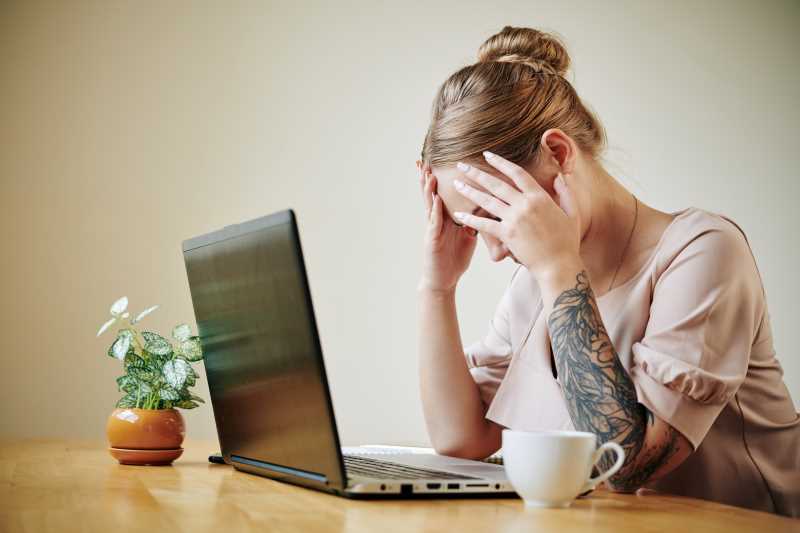The COVID-19 pandemic has changed people’s lives forever. Perhaps the biggest change is the shift to work from home (WFH) for many businesses seeking to survive the economic downturn caused by frequent quarantine lockdowns to contain the spread of the disease.
Yes, you may have read how WFH is the “future of work” and how many people are enjoying a better work life balance and increased productivity while working from home. But there is also a downside to WFH and this affects an individual’s mental health.
WFH Mental Health Risks
Let’s face it. Human beings are “social animals”. Perhaps the biggest mental health risk posed by WFH is isolation. This is especially true for employees who have grown used to and prefer the social atmosphere of the office, in spite of stresses with demanding bosses and difficult co-workers.
Because of WFH, a study showed that 19 percent of remote workers are reporting feelings of loneliness. When loneliness becomes chronic, as is what’s happening with the prolonged quarantines, another study revealed that actual and perceived social isolation and loneliness increases the risk for early mortality/death.
The second mental health risk with WFH is burnout. While it is true that people are experiencing increased productivity with WFH. However, this productivity is largely due to the addition of more working hours, particularly the one to two hours that were previously spent commuting to the office. In a survey conducted by Digital Ocean, 82 percent of remote tech workers are reporting symptoms of burnout. 52 percent of these workers are aware of the fact that they are working much longer hours WFH compared to when they were working in the office. In addition, 40 percent reported greater pressure to contribute more than their co-workers who are also working remotely.
Warning Signs That Your Mental Health Is Getting Affected by WFH
Because of the COVID-19 pandemic, we are all experiencing stressful times. Certainly, the isolation and burnout associated with WFH does not help.
If you are WFH, you should take note of the warning signs that your mental health may already be getting affected:
- Frequent mood swings – Big mood shifts (sadness, depression, anxiety, loneliness, and anger) and difficulties in managing emotions are signs that your mental health is getting affected.
- Changes in sleeping habits – getting too much or too little sleep are indicative or waning mental health
- Appetite and weight changes – Loss of or increased appetite which ultimately manifest as big weight gains or losses are indications that your mental distress is too high.
- Functioning difficulties – includes concentration difficulties, inability to stay on task, problems maintaining productivity
It should be mentioned that having a history of depression, anxiety, or other mental illnesses may put you at greater risk of developing the above symptoms and at a much greater intensity.
Steps to Stay In The Right State of Mind
Let us take a look at some strategies so that you can stay in the right state of mind while working from home:
The problem that most people have about WFH is that everything and everyone seems to be intruding into their personal lives, and this would include bosses, co-workers, and even family.
1) Plan your day
Make it a point to plan your time wisely. While WFH accords flexibility in schedule, it is best to stick to a schedule that is not only right for you, but also at hours when you are most productive. Inform family members beforehand that you are not to be disturbed during your working hours. In the same vein, inform your bosses and co-workers that you will not be taking calls, chats, texts, or emails outside of your working hours.
If there are household chores that need to be done, you can also schedule them during times of the day when you are not too busy. You can finish these mundane tasks before you start working. Or better yet, divide the chores among your family members.
2) Take better care of your body
If you want to alleviate stress and anxiety, it is best to take care of your body through exercise. Exercise can help burn away stress as well as raise the levels of “feel good” hormones. You can run or take a walk before working or after your work hours in order to get rid of pent-up energies that have accumulated while you worked.
WFH does not mean that you should be tied to your desk for eight to nine hours straight. Take short breaks to stand up and go for little walks around the house or breathe fresh air outside. An excellent form of exercise to get the kinks out of your body is stretching.
Of course, aside from exercise, don’t forget to eat healthy. Because you are WFH, you don’t have to order take out and instead cook healthy meals and snacks right in your kitchen.
3) Identify your stressors
If you find yourself constantly stressed out while WFH, you need to identify these stressors and come up with a solution. For example, if you are having problems with your work because of poor internet connection, you need to consider getting a different internet service provider or avail of a better plan. Do your kids always barge into your office during your work times? Better talk to them that you are not to be disturbed during your work hours. To get this message across in a stronger way, hang a “Do Not Disturb” sign outside your door.
4) Maintain open communication lines
WFH does not mean that you lose contact with people. Maintain social engagement by contacting co-workers during their non-working hours and chatting with them. Sometimes, offloading your WFH concerns with a colleague or friend can do wonders in relieving stress and loneliness.
5) Unplug from the negative
If it isn’t stressful enough to WFH, you also have to deal with the stresses of the COVID-19 pandemic and other negative events happening in the world today. Don’t add to your depression by constantly being tuned to the news on television or on social media. Make it a point to unplug from the negativity around you.
6) Get out of the house
You may think that getting out of the house might expose you to the dreaded virus. But if you want to give your mental health a boost, you need to get out from time to time. While observing healthy safety protocols, you can go out for short errands like buying groceries. Even walking around the neighborhood or in the confines of your garden or backyard can help to relieve your pent-up stress and anxieties.
Don’t let WFH drag your mental health down. Just follow our tips above in order to always stay in the right state of mind!


